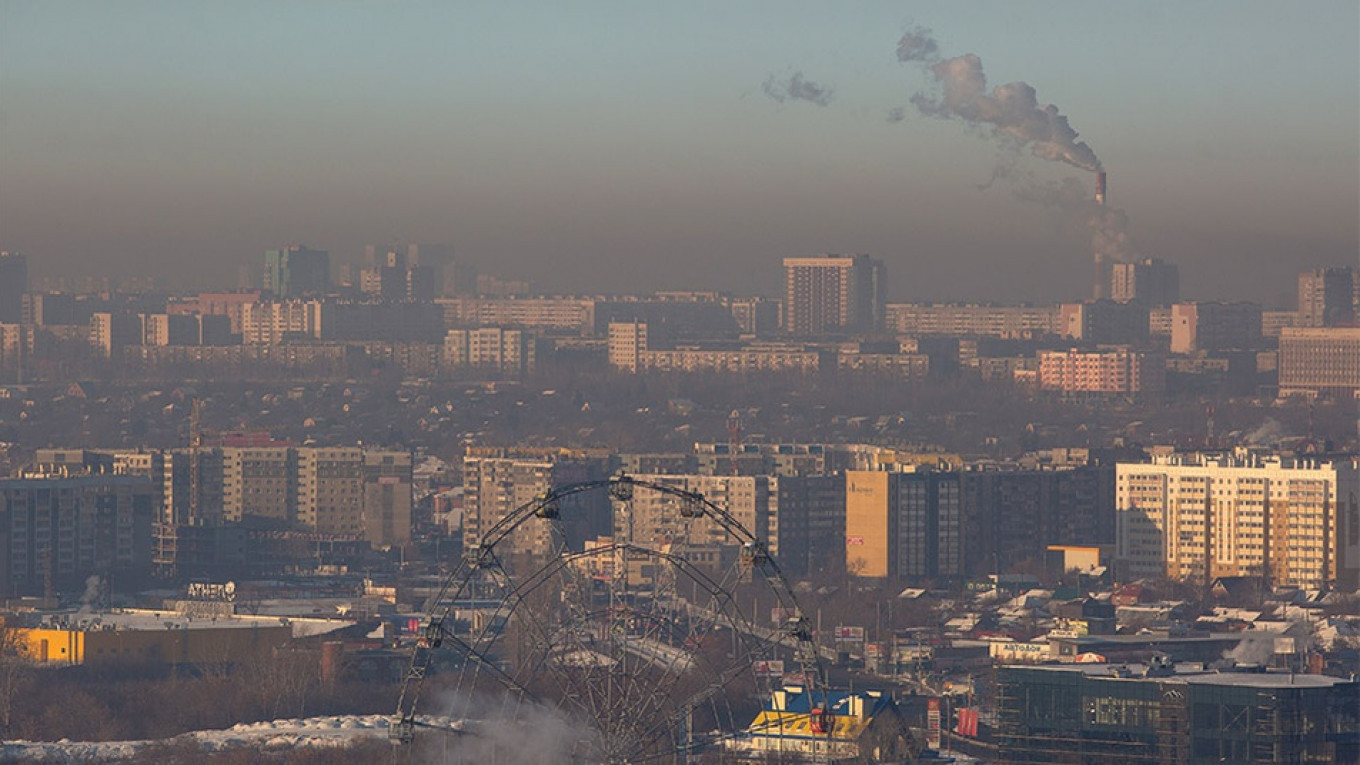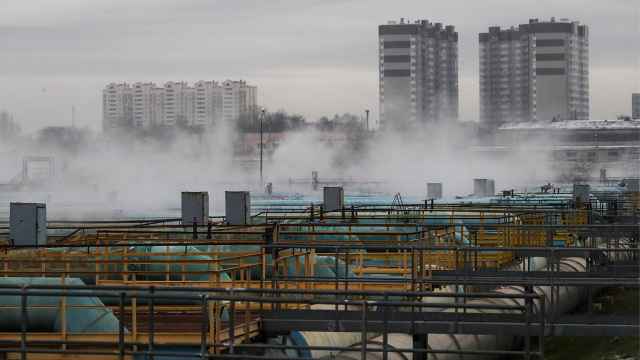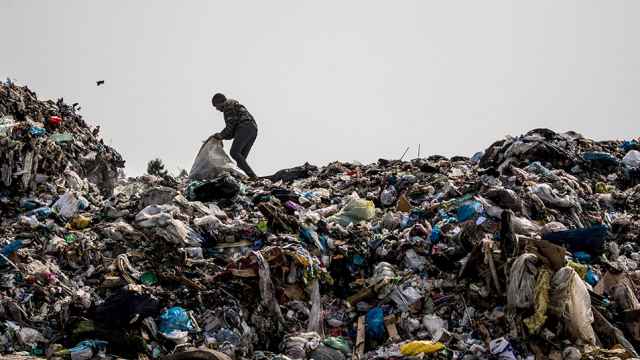Russian companies face a multi-billion dollar paradox when it comes to environmental, social and governance (ESG) issues.
If firms don’t pay attention to their ESG rankings, they could lose a large number of investors. However, if they do invest — what could be potentially billions of dollars — to cut emissions and switch to more sustainable models, there is no guarantee of real reward.
With 2020 shaping up to be a super-climate year, when carbon dioxide (CO2) emissions must start falling to prevent a climate disaster, Russian businesses and investors are being forced to navigate this paradox.
When it comes to ESG investing, Scandinavia leads the way, and Russia, together with the U.S., is at the bottom of the table.
But after Norway’s largest pension fund dumped all the shares it held in Nornickel in 2011 because the firm was polluting the Arctic, Russian corporates sat up and took notice. Change is coming.
ESG investing
ESG concerns first appeared in the 1990s but it wasn't until the last few years that they really took over as a major investment theme, driven by Scandinavian fund managers.
In the last year or so ESG has become a worldwide theme that companies ignore at their peril.
“Most funds that we surveyed confirmed the increasing use of ESG as an additional consolidated investment metric in their investment process and expect the trend to continue,” Russian brokerage BCS Global Markets said in a report. “In particular, Scandinavian regulation already prohibits most local fund managers from investing in ‘non-ESG compliant’ stocks.”
Other big stock market regulators, especially in the U.K., have not yet gone as far as the Scandinavian rules that block investments into companies with poor ESG scores.
But the writing is clearly on the wall, and fund managers in Europe have begun to do their homework. The preference for ESG-compliant stocks is high, and failing to pay attention to sustainability is already reducing the pool of investors a company can sell its shares to.
But it is still early days. The whole “green finance” phenomena is still in its infancy. The Institute of International Finance (IIF) reported in a note that ESG-compliant or “green bonds” still only account for 1% of the bond market, although their share is growing fast.
How to rate ESG
Due to the youth of the business there is still no standard set of rules for ranking companies on ESG. Even defining what is environmentally or socially compliant is difficult, although the guidelines for corporate governance are a lot more developed.
Currently the most developed rating of ESG is Morgan Stanley Capital International's (MSCI) ESG rankings. The MSCI group produce a number of benchmark indices and launched an ESG ranking in 2010 that covers 7,900 global companies and 650,000 equity and fixed income securities.
The privately-owned Sustain Analytics also provides well-developed independent ESG scoring on 13,000 global companies dating back to 2013 along similar lines to MSCI.
Another way of assessing ESG scores could be to turn to the rating agencies, but here too things are only starting to get going. So far Fitch is the only one of the big agencies that has launched a detailed ESG rating service, which currently publishes all rankings publicly.
“Fitch's ESG approach fills a market gap by publicly disclosing how an ESG issue directly affects a company's current credit rating,” the company explained.
So far, Fitch has published over 75,000 individual ESG scores for over 5,000 entities across the world, covering companies, banks and governments.
The list includes 50 leading Russian firms from state airline Aeroflot to retail giant X5. Most of the companies score in the middle range, meaning ESG scores are “minimally relevant” to the group’s credit rating.
A poll conducted by Moscow-based brokerage BCS found that 70% of the Russian bluechip companies said they intend to expand the resources they spend on ESG. Energy, metals and mining were the most active sectors.
Limited rewards
All companies are now in a position where they can be penalised for not paying attention to their ESG score. But the investment in ESG has yet to reach the point where a company is rewarded and sees the value of its stock rise if it has an especially good ESG score.
Moreover, while fund managers are aware of the importance of ESG, if a company is still “killing kittens” as part of its regular business but is making fat profits, then two thirds of professional fund managers will still invest in that company.
Another BCS poll of investment houses found 60% of funds said ESG plays a strong role in their decision-making, but for two-thirds of those, “if a portfolio manager knows that a company is killing kittens as a part of its regular business, but is still generating positive returns to its investors, then it is still a viable investment.”
There is also a strong geographic component to bans on investing in non-compliant ESG stocks. BCS found that 43% of continental European firms cannot invest into a company with a poor ESG score, whereas only 7% of U.K.-based funds can’t. And funds in Russia and the U.S. have no restrictions on them at all.
Differences also emerge in how important each of the environmental (E), social (S) and governance (G) themes are. Just under two thirds (62%) of managers polled by BCS said that governance was important — because it was already important before the whole ESG phenomena appeared — while just 19% and 18% respectively ranked environmental and social on the same level.
The widespread assumption is that there will be a premium added to stocks with good ESG scores, but that premium is still so low that an improvement in ESG scores still won’t move the dial.
“On the ability of the ESG theme to ... outperform the market in the long-term, our survey drew a mixed response,” BCS said. “Of the professional investors surveyed, only 28% believe ESG could outperform the market. However, others said they see the role of ESG growing significantly in the not too distant future.”
Within companies, however, 57% said ESG was an important component of beating the market.
“For the socially conscious, having money in ESG-compliant themes without it deteriorating performance can be reason enough to invest.”
The $30 trillion ESG prize
For years, the environment has never seemed top priority for either the Russian authorities or Russian companies.
However, that has recently changed. After Norway’s giant state pension fund banned investments into one of Russia’s largest publicly-traded companies Nornickel in 2011 due to pollution in the Arctic, the management sat up and took notice.
Since then, the company has spent over $2 billion to clean up its emissions. The rest of Russia’s extraction industry has looked on nervously and begun to put ESG policies in place.
Seven of Russia’s 10 largest firms now say they intend to invest into ESG in the hope of expanding their investor base.
The CEO of gold miner Polyus Gold Pavel Grachev estimates the pool of money targeting ESG compliant companies is currently worth $30 trillion.
Speaking to the St. Petersburg International Economic Forum, attended by President Vladimir Putin along with hundreds of international investors and Russian companies, Grachev said: “The ESG race for $30 trillion of investments is on.”
This article first appeared in bne IntelliNews.
A Message from The Moscow Times:
Dear readers,
We are facing unprecedented challenges. Russia's Prosecutor General's Office has designated The Moscow Times as an "undesirable" organization, criminalizing our work and putting our staff at risk of prosecution. This follows our earlier unjust labeling as a "foreign agent."
These actions are direct attempts to silence independent journalism in Russia. The authorities claim our work "discredits the decisions of the Russian leadership." We see things differently: we strive to provide accurate, unbiased reporting on Russia.
We, the journalists of The Moscow Times, refuse to be silenced. But to continue our work, we need your help.
Your support, no matter how small, makes a world of difference. If you can, please support us monthly starting from just $2. It's quick to set up, and every contribution makes a significant impact.
By supporting The Moscow Times, you're defending open, independent journalism in the face of repression. Thank you for standing with us.
Remind me later.







